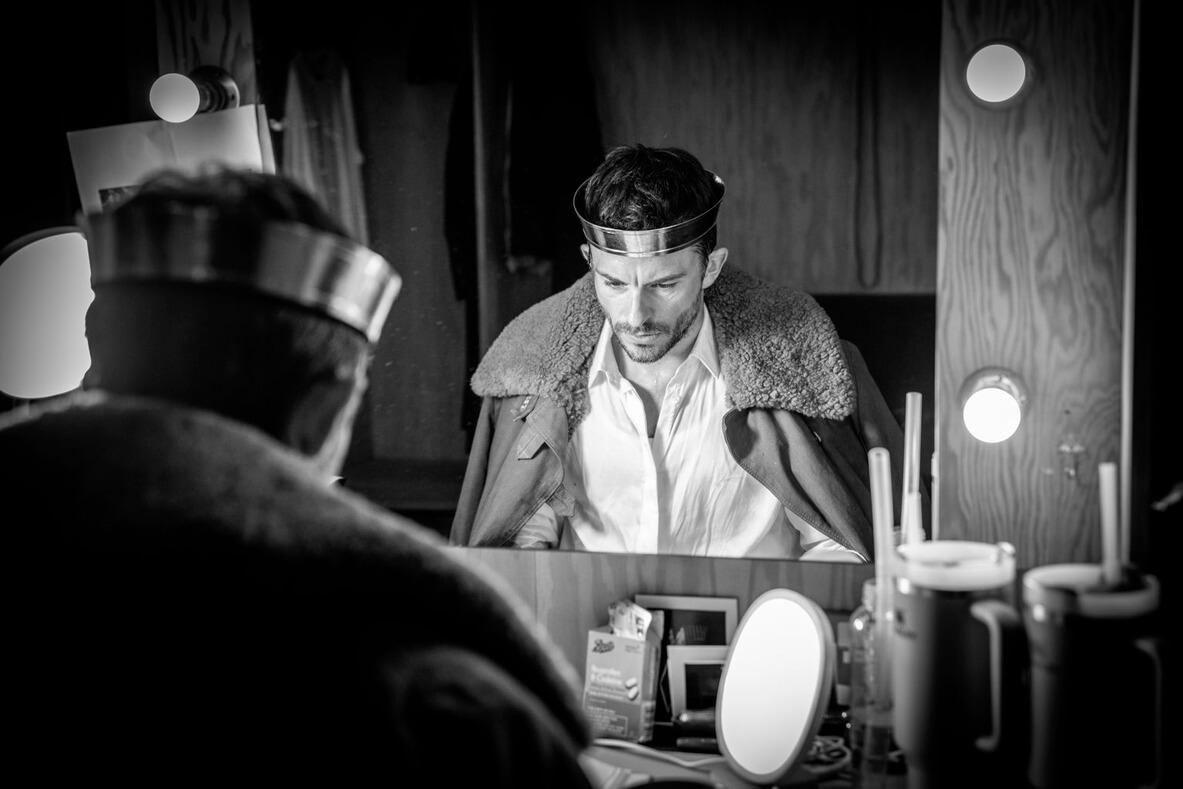This evening’s lineup comprised story and song by curator CN Lester, poetry and polemic by poet Jamie Hale, opera performances by mezzo-soprano Alexandra Bork and her pianist Nicholas Bonadies, and spoken word by Travis Alabanza.
“Trans people have been in the spotlight for all the wrong reasons for centuries” proclaims a projected title at the opening of the show. One act gives way to another, with no MC to string it all together. A couple of moments stood out, notably a genderfucked Offenbach duet between Lester and Bork, and some of the spoken word by Travis Alabanza employs some seriously cool sound engineering features that modulate Travis’ voice to several tones lower, creating a ‘double voice’ effect which provides a neat, subtle way of exploring the body and identity in front of us.
Other areas are a little hit and miss, and I’m not convinced it wouldn’t have been improved by being shortened down from 90 minutes. I also wondered if perhaps subtitles might have been of assistance in the opera numbers sung by Bork, in the interests of clarifying the story she was trying to tell and how it related to herself, but this is a minor quibble.
This review wouldn’t be complete without mention of the live BSL signing of the performance, which was executed with flair and grace by the interpreter. This is the first time I’ve seen BSL executed with such dance-like poise and fluidity, and where it felt like an integrated, artistically cohesive part of the performance. Particularly in a night about communication and identity, the transposition (no pun intended) of the piece into sign served to heighten the performance and sometimes provided new levels.
Perhaps from having read Judith Butler at an impressionable age, when I hear ‘queer / trans performance collective’ I tend to think glitz, drag, sequins: these can seem almost synonymous with the genderfuckery these nights tend to present. Transpose disavows all this in favour of a more stripped-back, minimal aesthetic, which offers a space for acts that might not be entirely at home in that context. Indeed, it made me wonder quite why my expectations had been what they were at all, which is probably quite healthy. When the group take their bow at the end, the diversity of bodies and persons onstage is stunning, and absolutely vital in the current theatrical landscape.

 Now in its second instalment at the Barbican, Transpose brings together an evening of spoken word, song, and music, allowing trans and non-binary artists to tell their own stories, speak their own truth.
Now in its second instalment at the Barbican, Transpose brings together an evening of spoken word, song, and music, allowing trans and non-binary artists to tell their own stories, speak their own truth.



 Well this is a night of jolly good fun. Daisy and her comrades most certainly pull it off in this utterly spiffing revival of Denise Deegan’s award-winning play.
Well this is a night of jolly good fun. Daisy and her comrades most certainly pull it off in this utterly spiffing revival of Denise Deegan’s award-winning play.